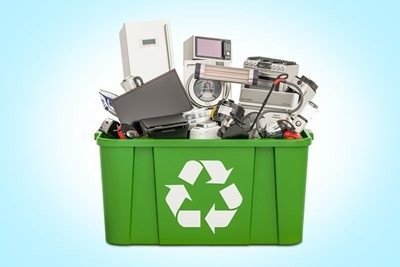In today’s fast-paced digital world, batteries power almost every aspect of our lives. From smartphones and laptops to electric vehicles and renewable energy storage, batteries have become indispensable. However, the growing demand for batteries also brings a critical challenge—what happens when these batteries reach the end of their lifecycle? For businesses, the disposal of batteries is not only an environmental concern but also an opportunity. By embracing innovative battery recycling techniques, companies can turn waste into profit while building a sustainable brand image.
Why Battery Recycling Matters
Every year, millions of tons of batteries are discarded worldwide. These batteries contain valuable materials such as lithium, cobalt, nickel, and lead, which can be reused in manufacturing new products. Unfortunately, when batteries are not recycled properly, they can release harmful chemicals into the environment, contaminating soil and water sources.
For businesses, battery recycling is more than just compliance with environmental regulations—it is an untapped revenue stream. Companies that implement effective recycling processes can recover high-value metals, reduce raw material costs, and even open new business opportunities in the green economy.
Common Battery Recycling Techniques
Different types of batteries require different recycling processes. Here are the most common and effective methods businesses can adopt:
1. Pyrometallurgical Recycling
This method involves using high-temperature furnaces to smelt batteries and extract metals. The process is particularly useful for lead-acid and nickel-cadmium batteries. While it is energy-intensive, it allows businesses to recover valuable metals like cobalt, nickel, and copper. Companies engaged in large-scale battery waste management often use this technique due to its efficiency.
2. Hydrometallurgical Recycling
Also known as leaching, this process uses chemical solutions to dissolve metals from shredded battery materials. Hydrometallurgy is more eco-friendly compared to pyrometallurgy and is widely used for lithium-ion batteries. Businesses benefit from higher recovery rates of lithium, cobalt, and nickel, which are in great demand for electronics and EV manufacturing.
3. Direct Recycling
Direct recycling preserves the cathode structure of lithium-ion batteries instead of breaking them down completely. This method requires less energy and retains more of the original material’s value. For businesses looking to save costs in re-manufacturing batteries, direct epr recycling provides a competitive advantage.
4. Mechanical Recycling
In this technique, batteries are mechanically shredded, and components like plastics, metals, and chemicals are separated through filtration, sieving, or magnetic methods. While not as advanced as hydrometallurgy or pyrometallurgy, it is cost-effective and useful for processing large volumes of battery waste.
Turning Waste into Profit
Recycling batteries is not just about reducing environmental impact—it is a strategic business move. Here’s how companies can transform battery waste into profits:
- Recovering Valuable Materials:
Metals like cobalt and nickel are expensive to mine and in limited supply. By recycling batteries, businesses can create a reliable source of raw materials at a lower cost. These recovered materials can be sold to manufacturers, generating additional revenue streams. - Reducing Supply Chain Risks:
Global demand for lithium and cobalt is skyrocketing, leading to supply chain challenges. Companies that recycle batteries internally can secure their own material supply and reduce dependency on volatile markets. - Lowering Production Costs:
By reusing recycled components, businesses can cut down on purchasing new raw materials. This not only lowers expenses but also helps stabilize production in the face of fluctuating commodity prices. - New Business Opportunities:
Battery recycling opens doors to partnerships with electronics companies, EV manufacturers, and government agencies. Firms can position themselves as reliable recycling partners, creating entirely new lines of business in the sustainability sector. - Boosting Brand Reputation:
Modern consumers are environmentally conscious and prefer brands that adopt sustainable practices. Companies that invest in battery recycling can promote their eco-friendly initiatives, attracting customers, investors, and business partners.
The Role of Businesses in Sustainable Growth
Battery recycling is not just about compliance—it’s about responsibility and leadership. Businesses that act now can take advantage of government incentives, meet sustainability goals, and future-proof their operations. With regulations around e-waste tightening globally, proactive companies will be better positioned to thrive in a circular economy.
Moreover, many countries are offering tax benefits, subsidies, and grants to organizations that implement battery recycling programs. Businesses that seize this opportunity will not only save costs but also gain a competitive edge in their industry.
Future of Battery Recycling
The future of battery recycling looks promising, especially with technological innovations. Advanced AI-driven sorting systems, robotic dismantling, and cleaner chemical processes are making recycling more efficient and less costly. For businesses, investing in these technologies now means being ahead of the curve when demand for recycled materials grows even further.
The global push toward electric vehicles, renewable energy, and sustainable electronics ensures that the need for effective battery recycling will only increase. Companies that embrace these techniques will not only contribute to a greener planet but also secure long-term profitability.
Conclusion
Battery recycling is no longer just an environmental obligation—it is a business opportunity waiting to be explored. By adopting advanced recycling techniques such as hydrometallurgy, pyrometallurgy, direct recycling, and mechanical methods, businesses can recover valuable materials, reduce costs, and establish themselves as leaders in sustainability.
Turning waste into profit is more than a slogan; it’s a viable strategy for companies aiming to thrive in the modern green economy. Forward-thinking businesses that invest in battery recycling today will reap financial rewards while protecting the planet for generations to come.

